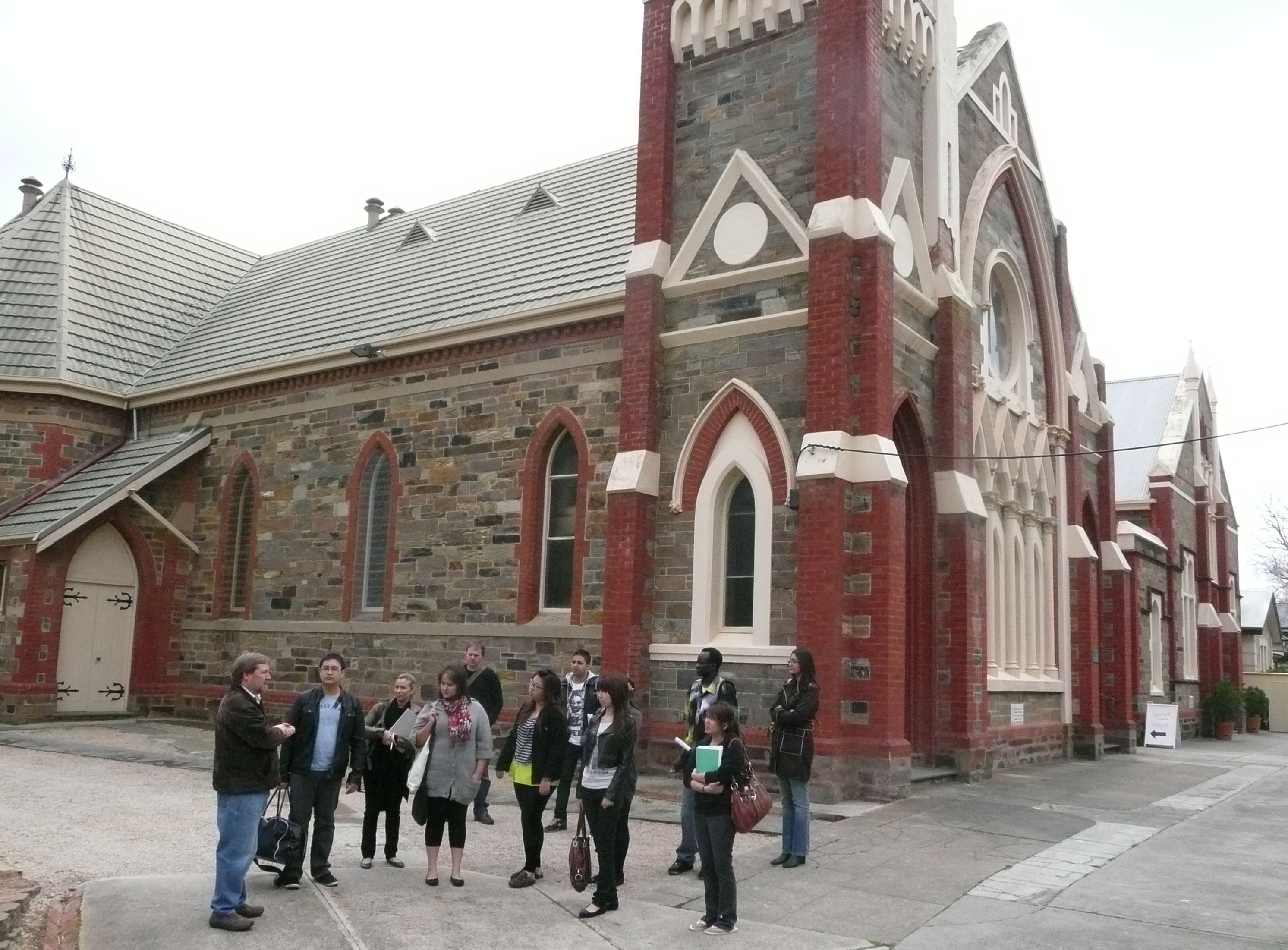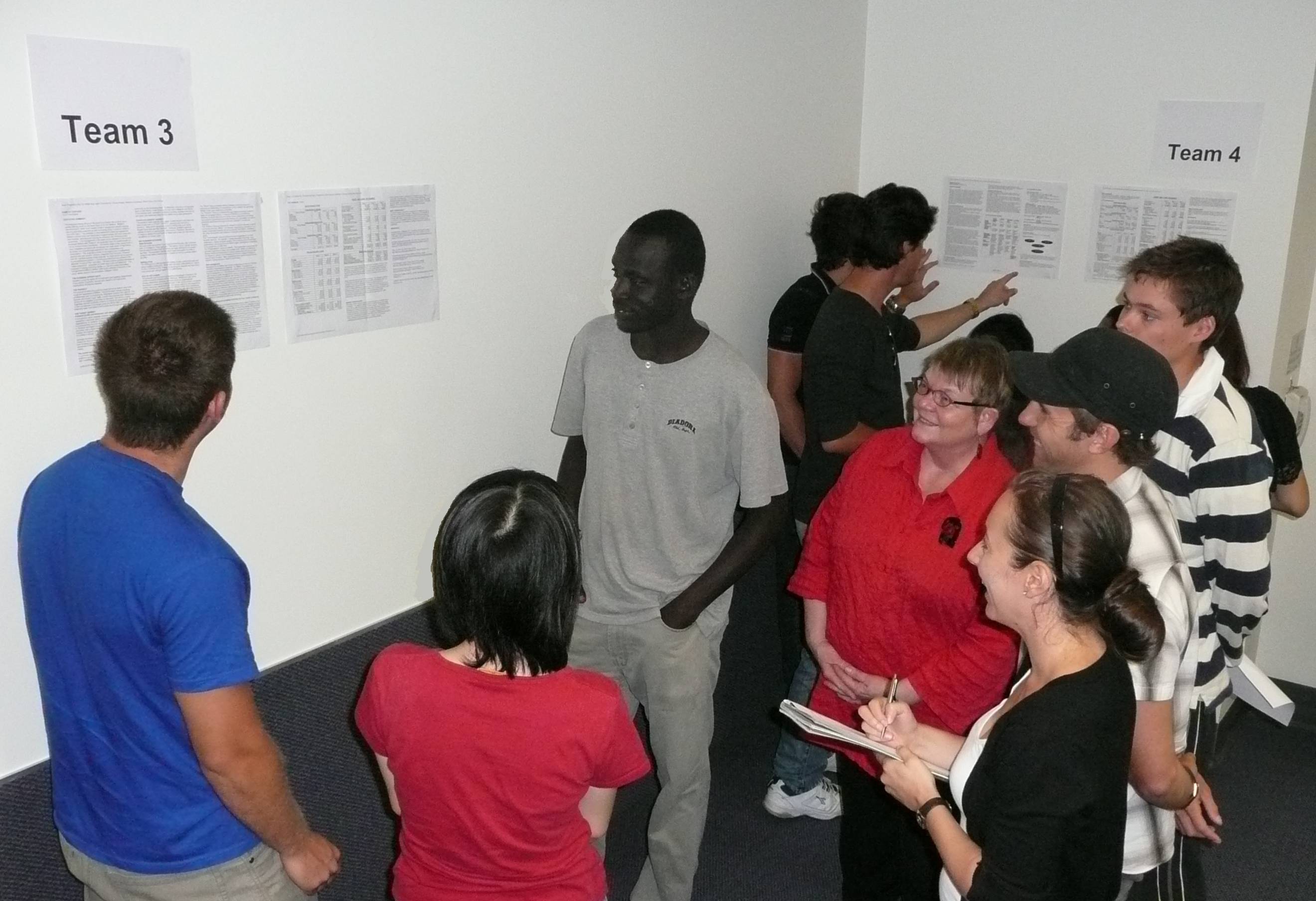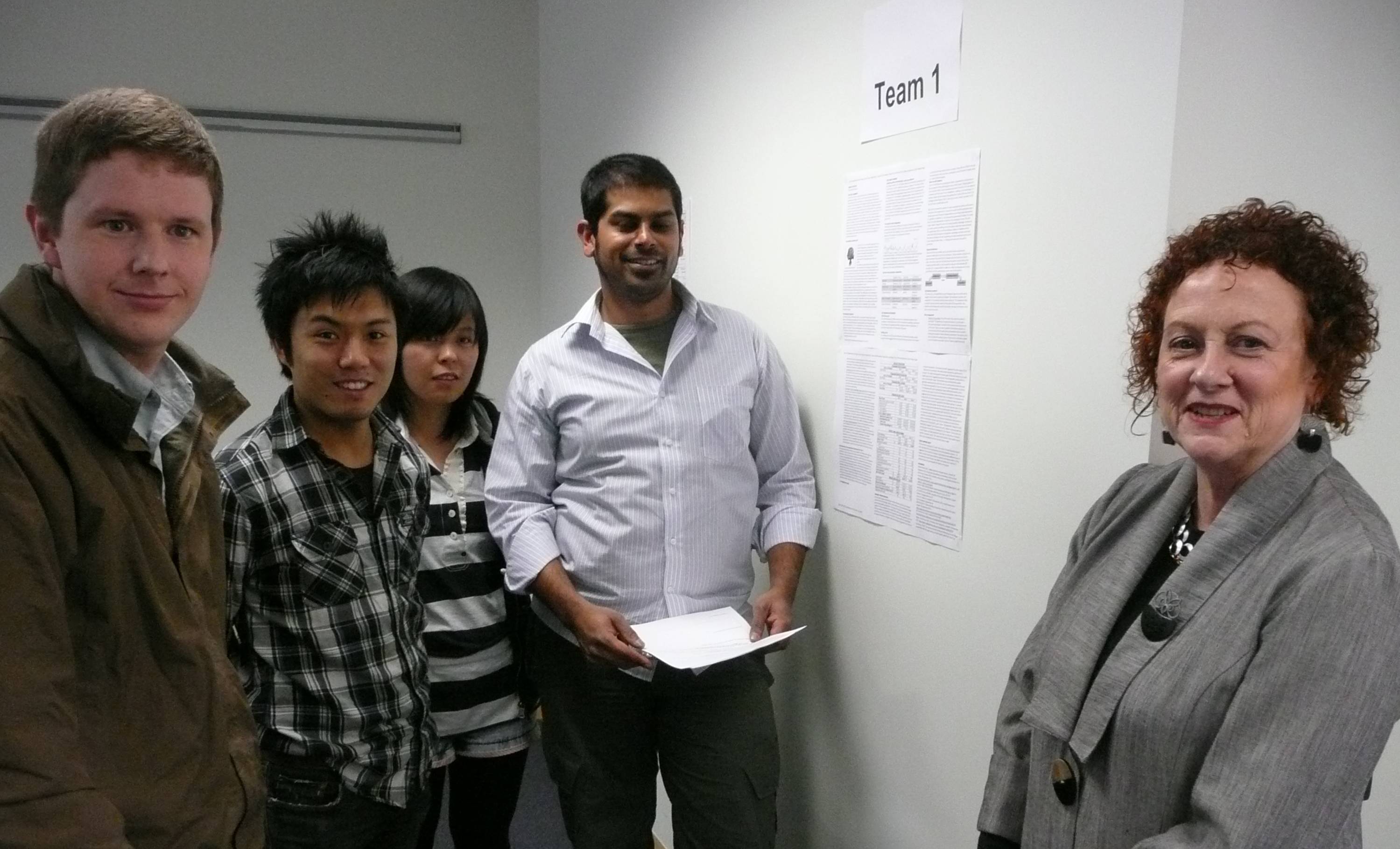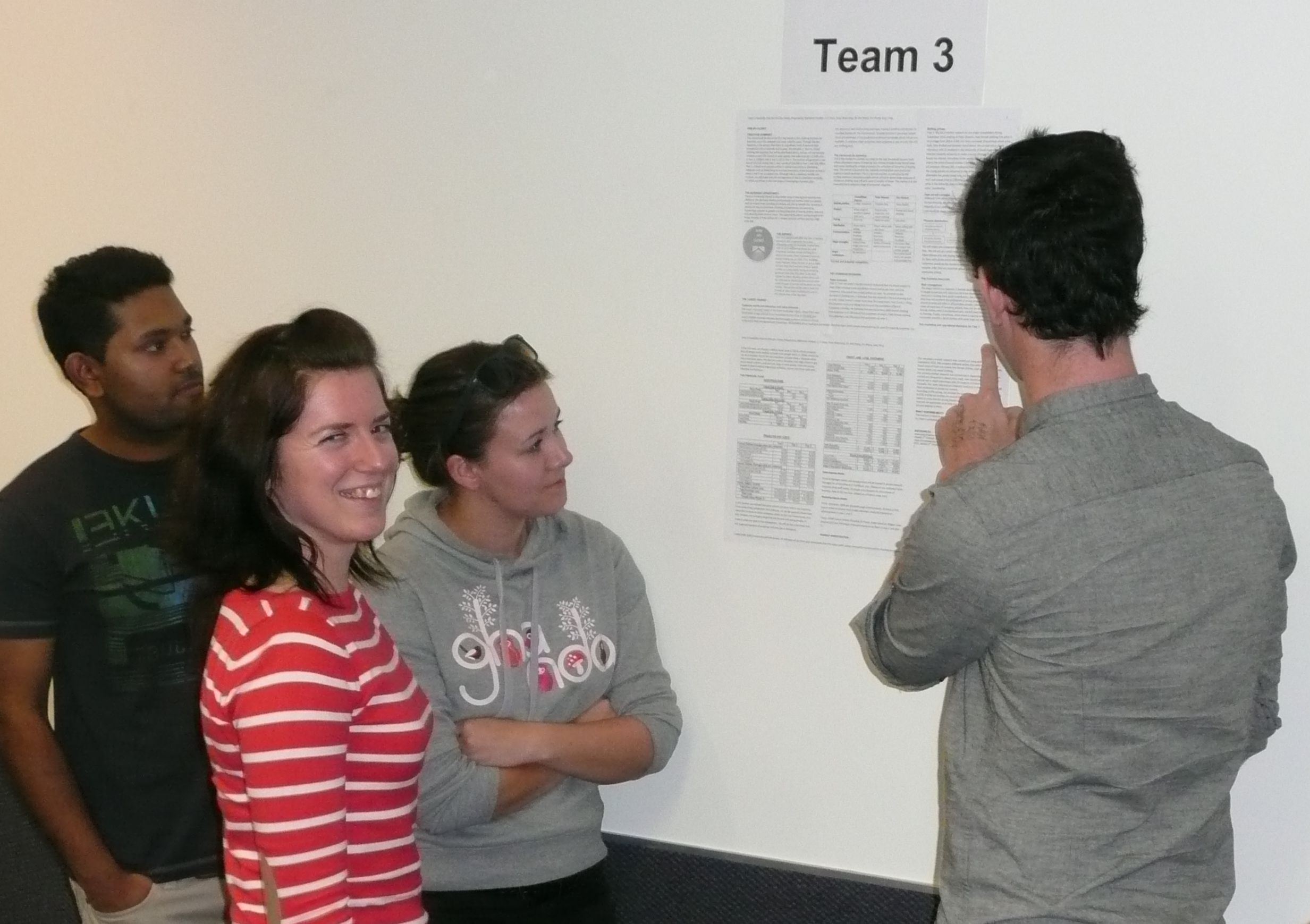Topic outline
-
One business idea for the class Learn from new technology ideas Learn from social enterprises Learn from the market Each class is given a single business idea to develop for the major assessment. A single idea provides a focus for productive discussions during the lecture and exercise sessions. This idea may be a new and novel technology that is not in the local market, or it may be a social enterprise challenge.
Learning by focusing on a single business idea for the whole class
Our courses are designed to introduce the theories and principles as well as practices that underpin entrepreneurial activity. The overall aim is to educate students by giving a grounding in this field.
This is most effectively done by the lecturer identifying an appropriate and novel business idea, and having everyone in the class tackle the same idea. This idea is used as the focus for discussion during the lecture/seminar sessions, and also for the exercises carried out during these sessions. Everyone will be working with the same information, and this means that you gain from collaborative learning. In particular:
- you will all learn about the key aspects of the business idea during the course delivery - this will relate the theories and concepts directly to a practical example with which everyone will very quickly become familiar
- you will be able to learn more, and in depth, about how to deal with a business concept
- you will learn more form the contributions of others in the class
- you will gain insights from the application of models and theories to this idea, and this will equip you to develop other business ideas
In addition, when you come to the report presentation and review session:
- you will be able very quickly to learn from the ways that other teams have addressed the same concept, because you will know what to look for when you look at their plans
- everyone will be able to contribute to (and to gain from) the question and discussion session
This makes the process a valuable learning exercise.
In particular, this approach gives you a creative challenge! You need to:
- creatively adapt the business idea to local market preferences (based on your market research)
- apply a creative approach to market segmentation, market positioning, distribution, pricing and communications
- apply a creative approach to developing the new business venture
Finally, it is easier for all team members to be engaged in a project that is specified, rather than a project that is one team member's particular "baby".
Business ideas selected for these courses include:
- technology-based business concepts that are not commercialised locally, and
- social enterprises seeking business ideas to ensure financial sustainability.
Learn by working with innovative technology business concepts
Each class is given one business idea to develop for the major assessment.
This may be a technology-based business concept that is not commercialised in the local market. (Sometimes the project is in the field of social entrepreneurship.) This business concept provides a focus for discussion during the lecture and exercise sessions.
This approach means that students learn how to analyse a business concept professionally, and they also learn from other students, particularly at the report presentation and review session when all teams present their work. In particular, they learn that different people will interpret and develop the same business concept in different ways.
Some of the technology business ideas that have been explored include:
- a novel electric car that folds up to save space
- an electric bike with the design based on the penny farthing (the Yike Bike)
- a technology developed by UniSA for communicating between motor vehicles, so that they can avoid traffic congestion and collisions
- an intelligent hose nozzle that measures the volume of water that is to deliver during washing or watering
- The "Taga Bike" that combines the benefits of a stroller and a bicycle to carry infants
Learn about the challenges of social entrepreneurship
We take on social entrepreneurship initiatives where the class is given the challenge to identify and develop revenue and profit-generating business ideas to ensure the financial sustainability of social enterprises. This business challenge provides a focus for discussion during the lecture and exercise sessions.
This approach means that students learn how to develop and analyse a business concept professionally, and they also learn from other students, particularly at the report presentation and review session when all teams present their work. In particular, they learn that different people will interpret and develop the same business concept in different ways.
In one course, students carried out a project to identify and evaluate a range of possible revenue-generating activities for the Spicer Uniting Church, St Peters. They were briefed at an on-site visit by Minister Mark Hewitt (left), who also attended the report presentation and review session. In another class, students proposed a creative range of revenue-generating business ideas for BINSA (Brain Injury Network SA). BINSA CEO, Ms Mariann McNamara (pictured), briefed the class and gave students feedback at the report presentation and review session. In a different class, students investigated possible sources of revenue and profit for Carers SA. The CEO of this social enterprise, Ms Rosemary Worthington (right), briefed students and gave students feedback on their project reports. In this class, students investigated business ideas to support homeless youth. Ms Alison Douglas (left) was one of the HYPA staff who briefed the class and gave students feedback on their project reports. Learn by coming face to face with the market
Each class is given the challenge to develop (as a team exercise) a report on how to develop a business using a new and innovative technology that is not already in the local market.
The report may be either a feasibility plan, a marketing plan, or a business plan, depending on the particular course.
This means that each team of students must carry out a certain amount of market investigation to understand how this new technology will fit into the market. This requires:
- Analysing secondary market information about the technology and the industry in which it is positioned (this is desk research)
- Finding out the attitudes and behaviours of potential customers for the technology (this is primary research, or field research)
Primary market research is particularly important. There are two pieces of information that teams can only obtain by interviewing potential customers:
- How likely they are to buy the product (purchase likelihood)
- How much they would be prepared to pay
Any plan for a new venture that does not include this kind of information obtained directly from potential customers will have no credibility.
These areas are covered in the lecture/seminar sessions. In particular, students are given role-play exercises where they carry out this kind of survey in the classroom, interviewing their colleagues. This is a valuable preparation before they interview members of the general public about their particular innovation.
Students gain a great deal of confidence from this exercise. In addition, they learn:
- how challenging real market research is
- what is needed to analyse the market for a product concept that is completely new to that market
- how to go about obtaining critical information in a situation where there is a lot of uncertainty (as members of the public are often not familiar with the particular product or service)



